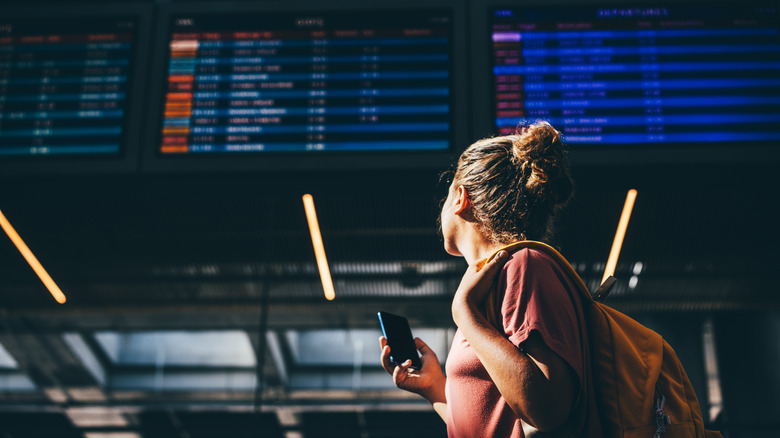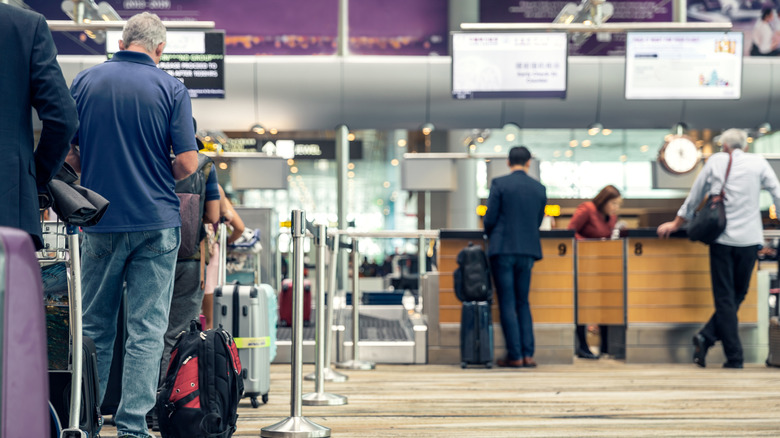Should Travelers Worry About Flight Delays With The Government Shutdown?
It's no secret that a government shutdown can potentially affect your travel plans. That's because many of the people who keep air travel running — from TSA screeners to air traffic controllers — are considered essential workers. So, during a shutdown, they'll still show up to work, even if their paychecks are delayed.
During the last major shutdown in 2018, flights kept moving — but cracks in the system began to show. With no pay coming in, many essential workers called out, security lines grew longer, and a few airports even reported temporary checkpoint closures. In fact, towards the end of that shutdown, 10 air traffic controllers calling out of work led to serious delays and bottlenecks at major travel centers like LaGuardia Airport in New York, as well as in other cities, such as Atlanta (home to the world's busiest airport), Philadelphia, and New Jersey.
According to the U.S. Transportation Department, more than 11,000 FAA employees could be furloughed if the shutdown continues, impacting inspections, training, and hiring — all of which keep the system efficient and safe (via Reuters). Airlines have also warned that fewer available staff could mean slower operations or ripple delays if things stretch out too long. While the average traveler may not notice much right away, a shutdown that lasts weeks rather than days could gum up the works. With that said, travelers don't need to pull the plug on all their upcoming vacation or business travel plans. Ultimately, your flight probably isn't getting outright canceled because of the shutdown, but your journey might take a bit longer.
How to prepare for air travel during a government shutdown
The shutdown will certainly have a notable impact on the overall travel industry. The U.S. Travel Association warned Congress that the shutdown will cost the travel sector about $1 billion a week. Traveler confidence is also shaken, with a survey from Ipsos revealing that more than half of Americans said their travel plans would change because of the shutdown. Experts say the chances of travel disruptions increase the longer the shutdown carries on. So, in the beginning, you may notice only minor issues with getting through security, taking off, and landing on time. However, if the shutdown continues for weeks, travelers should expect delays and plan accordingly.
That means arriving at the airport earlier, getting to your gate earlier, keeping a close eye on travel updates, and making sure you have all the required travel documents (passports, REAL ID-compliant licenses, etc.) ready to go well in advance of your trip. The last thing you want to be dealing with is a last-minute passport or ID renewal when public services are under strain. And in the worst-case scenario, here are 12 things to do immediately if your flight is delayed.

